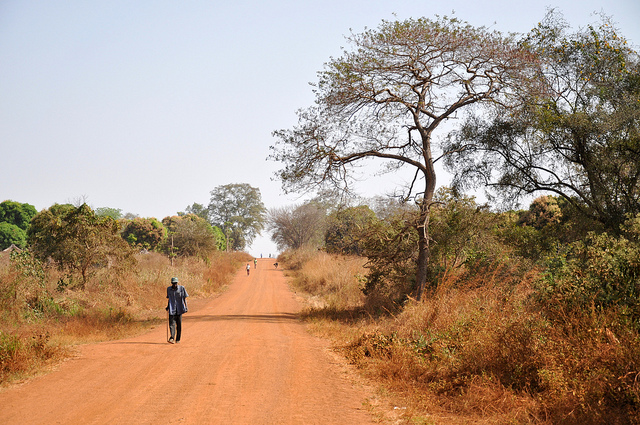Sudan: What’s next for Abyei?
As humanitarian organizations and the UN strive to meet the immediate needs of displaced people, Oxfam is calling on the UN Security Council to ensure that the new peacekeeping mission in Sudan makes protecting civilians from violence its top priority.
This blog was written by Noah Gottschalk, Senior policy advisor for humanitarian response
Tensions are running high in Sudan, where an upsurge in violence in the border region of Abyei has displaced tens of thousands of people and raised fears of a return to all-out war.
With just over six weeks to go before South Sudan becomes the world’s newest country, the world’s focus has largely been on the incredible accomplishments of the largely peaceful referendum held last January to determine the future of Sudan. The results of that vote, which was a key provision of the 2005 Comprehensive Peace Agreement (CPA) that ended more than two decades of conflict, were overwhelmingly for secession, and southerners have been readying themselves for what they had hoped would be a peaceful independence day.
Yet with the violence in Abyei – an area roughly the size of Connecticut that was one of the worst-affected areas during the war and has long been seen as a key flashpoint of conflict –the security situation is on a knife-edge. The conflict in Abyei comes at a time when southern Sudan is facing its most violent year since the end of the civil war in 2005. Not including these recent events, over 1,400 people have been killed in southern Sudan so far this year – already more than in the whole of 2010 – and at least 117,000 have fled their homes, as violence has dramatically increased in recent months.

Abyei itself has been the site of conflict several times since the signing of the CPA. In May 2008, more than 50,000 people were displaced from Abyei, and much of the town was destroyed by fighting and subsequent looting. Just over two months ago, in March of this year, more than 150 people were killed and at least 25,000 people fled in fear.
Southern Sudan is already one of the poorest and least-developed regions in the world. Less than half the population has access to clean water and maternal mortality rates are among the worst in the world. There are barely any tarmac roads in the entire region, an area roughly the size of Texas, and during heavy rains many areas are cut off for months at a time, making the delivery of humanitarian aid almost impossible. Some 97% of women cannot read or write (overall illiteracy is about 80 percent of adults) and one in seven children die before their fifth birthday. Since the peace treaty was signed, the South has experienced violence, flooding, and drought, yet its people have made some remarkable strides with the help of the US and other international donors. Oxfam has worked in the south for 27 years, providing water and sanitation, responding to humanitarian emergencies, and supporting livelihoods.
Yet development gains can all too easily be wiped out by conflict, and so Oxfam is calling on the UN Security Council, which is currently reviewing the mandate of the peacekeeping operation, the United Nations Mission in Sudan (UNMIS), to ensure the new mission makes protecting civilians from violence its top priority. This would mean having a mandate under Chapter VII of the UN Charter.
In the past, the UN peacekeeping mission has struggled and at times failed to protect people in southern Sudan from violence, but the Security Council now has a chance to put that right. Oxfam is calling for the new peacekeeping mission, which is planned to take up its mandate after independence, to deploy more troops to the most volatile “hotspot” areas, and ensure that they have the right training and equipment to be able to deter outbreaks of violence, and to respond rapidly as incidents occur. Peacekeepers should be able to carry out more long-range patrols and spend more time consulting with at-risk communities. Better monitoring by civilian staff of human rights abuses and potential areas of conflict is also needed.
In response to the latest outbreak of violence, humanitarian organizations and the United Nations are working to support the basic needs of the displaced people, many of whom fled with little to nothing. But the start of the rainy season could make efforts by humanitarian agencies to reach the displaced increasingly difficult.
In addition to meeting the needs of those affected by the violence, the international community must increase its efforts to prevent the situation on the ground from worsening. UNMIS does not have the capacity to physically intervene between the two parties, but it does have a mandate to protect civilians under imminent threat of violence.
Stay connected with us on Twitter and Facebook to hear the latest news and learn about ways you can help.
To support Oxfam’s response, click here to donate to the Sudan Crisis Relief and Rehabilitation Fund.